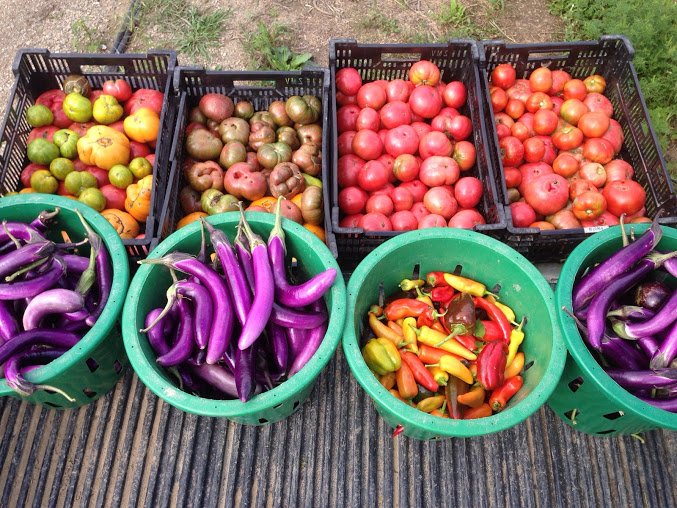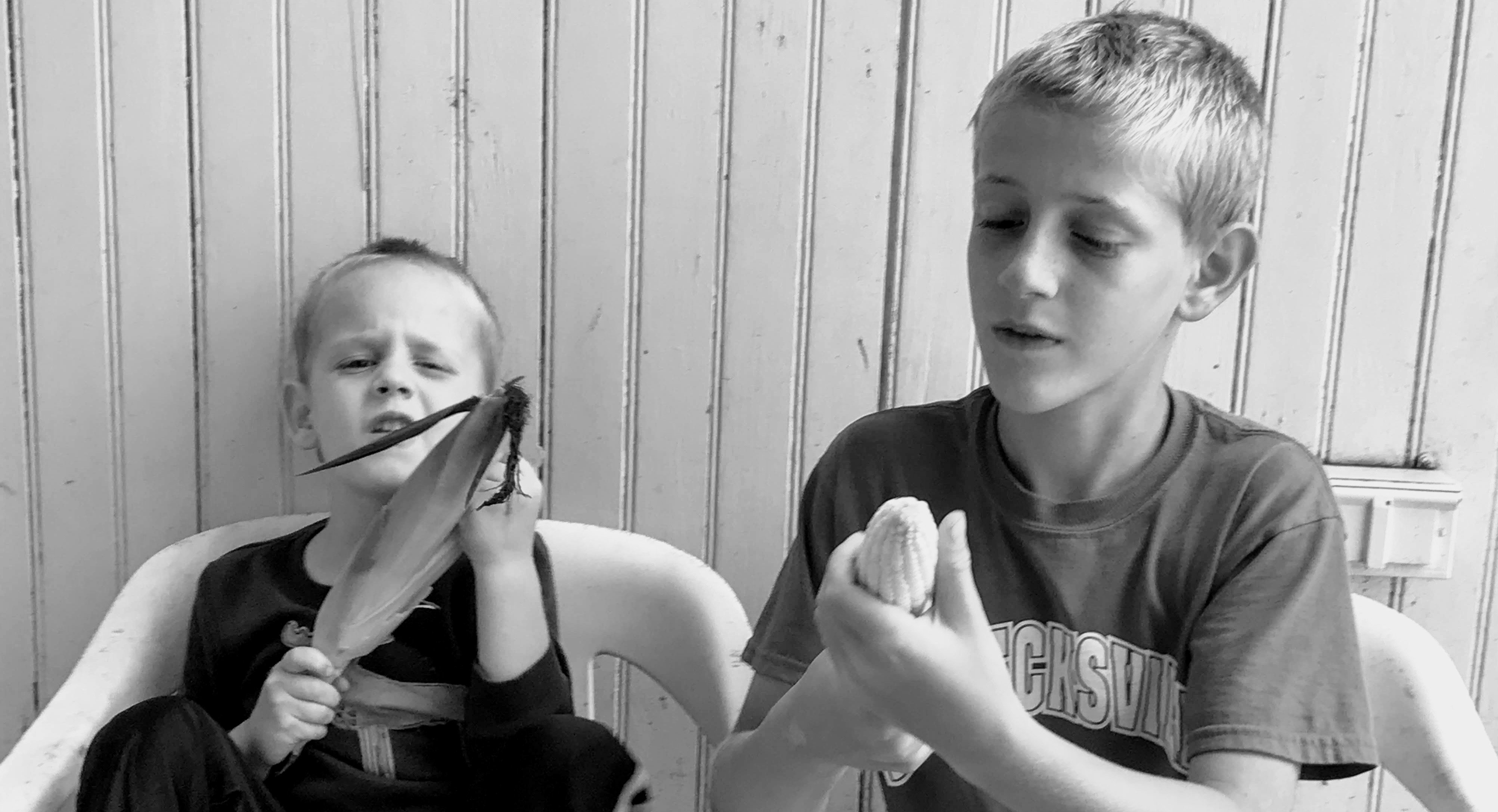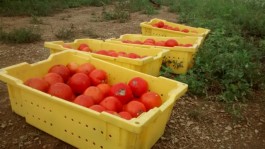** Keep a close watch on your spaghetti squash, melons and tomatoes this week. **
What should you do if your farm fresh vegetables have spots or imperfections?
You don’t need to throw the whole item out, save what you can. The earlier you catch it the more you can save and use. Usually the rest of the fruit or vegetable will taste great after you cut off a bad spot.
Unlike the produce grown in the irrigated, desert farms of California, our crops get a natural rainfall. But this year we are getting too much at the critical time when melons, squash and tomatoes are ripening. I’ve mentioned before that this means some crops aren’t ripening on time. Another factor is that they are absorbing too much water.
Too much water causes tomatoes and melons to crack, rendering them unusable. We can’t send them to you because they won’t keep. On some picking days we unfortunately have to discard more than half of what is in the field because of cracking and spoilage.
That means that the items that go in your box are the best of what made it in from the field. However, those same rainy conditions can mean that they may not last on your counter as long.
Some items that don’t normally need to be refrigerated should be put in the fridge if you won’t be cooking them soon. The spaghetti squash I had on the counter didn’t last more than five days. I should have cooked it at the end of last week or put it in the fridge.
Fruit is especially vulnerable. It just won’t keep as well in these conditions. Use it to make something or eat fresh very soon.
What’s going well? On a diversified farm the weather is always good for something. Our pastures are lush with green grass for our animals and our hayfields are growing tall. When we get some sun we’ll be able to cut, bale, and store our hay for feeding the animals this winter.




